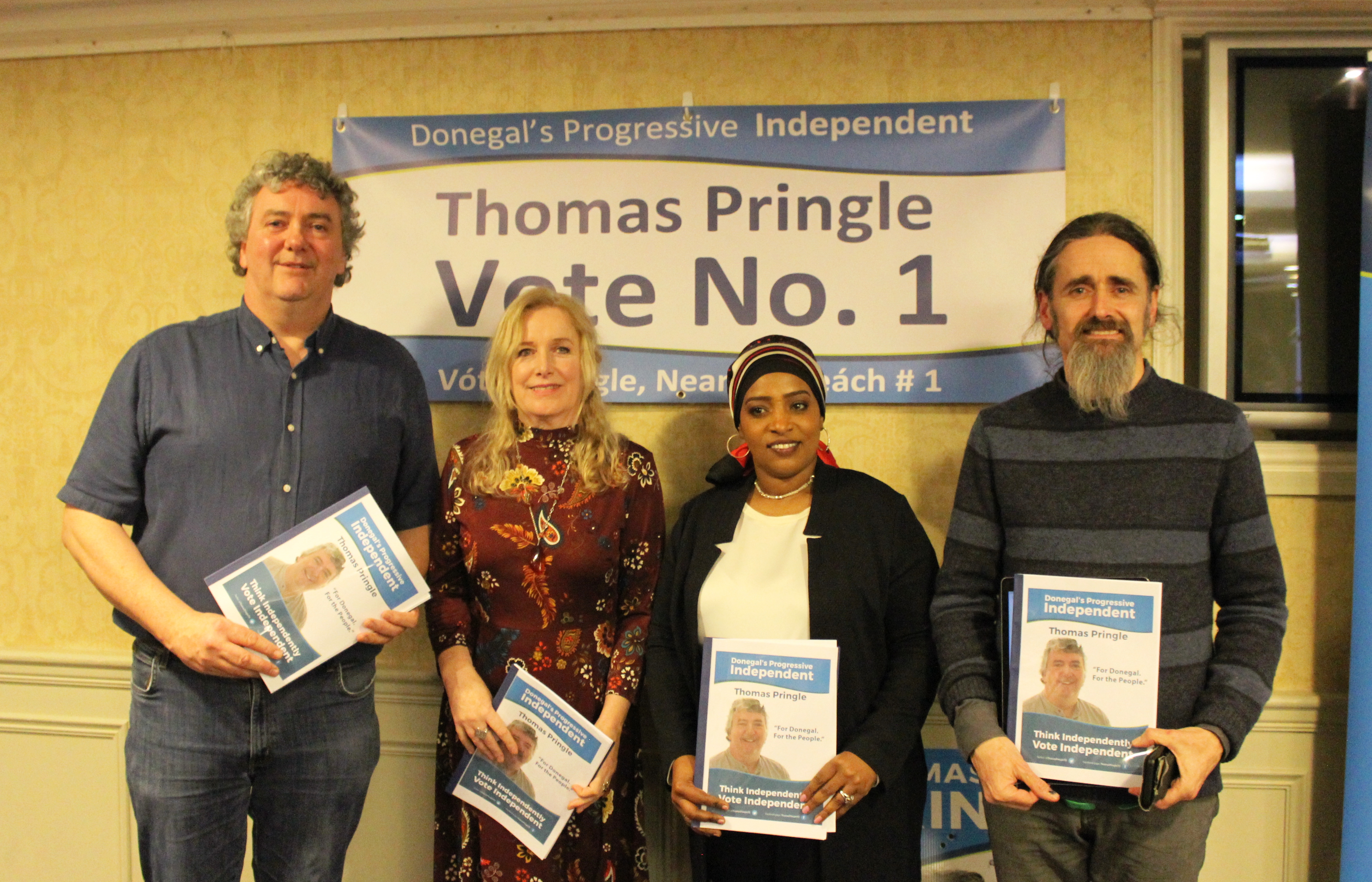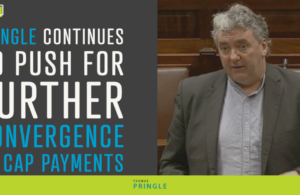- Pringle: We need a policy that recognises the importance of inshore fishing
- Pringle: Disabled people and carers face crisis of State neglect
- Pringle: Failed FF/FG housing policies forcing people to put their lives on hold
- Pringle welcomes Donegal council motion on Occupied Territories Bill: ‘We cannot stand by in the face of genocide’
Flattening Payments Would Bring €17m to Donegal Farmers Annually – Pringle
- Updated: 27th January 2020

“Averaging of payments per hectare would increase farm income by up to 60% for smaller farmers and help combat climate change” says Pringle.
**********
Independent general election candidate Thomas Pringle has been working with Luke ‘Ming’ Flannagan MEP to force the government to flatten the Basic Payment Scheme (BPS) in the CAP negotiations. This, they claim, along with increased payments under Agri Environment Schemes will support 7,000 smaller farmers in Donegal by bringing an additional €17m annually in extra payments to the county.
On the issue Pringle says, “The vast majority of farmers in Donegal are small farmers mostly on marginal land and hill farms. They are farming in a more natural and environmentally friendly way than the big farmers who have been benefiting most from CAP payments. Under the BPS the Irish government has, to date, been awarding payments to the benefit of larger farmers down the country, with some getting up to €450 per hectare while some smaller farmers in Donegal have been getting less than €150 in many cases. This is unacceptable.
“In December my colleague, Luke #Ming’ Flannagan MEP, secured an amendment in the European Parliament which means that the Irish government will now have to flatten BPS payments to around €260 per hectare for all farmers. My role in the Dáil will be to ensure that the government complies with this.
“Fine Gael and Fianna Fáil governments have been dividing farm payments in a way that benefits larger farmers rather than all farmers. This has to stop as smaller farmers are managing the land in a far more sustainable way that supports biodiversity and lower carbon emissions.
“I have been supporting the Irish Natura and Hill Farmers Association (INHFA) who have been campaigning for this reform. I also support their call to have restrictions on the Green and Low carbon Agri-Environmental Scheme (GLAS) lifted to increase participation to the environmentally friendly scheme.
He continued, “Small farmers on marginal land have a vital role to play in capturing carbon emissions and decreasing biodiversity loss. This can be done by supporting them to maintain bog land, planting native species of hardwood trees rather than massive sitka spruce plantations, and by maintaining habitats that support a wide range of biodiversity” concludes Pringle.
ENDS

